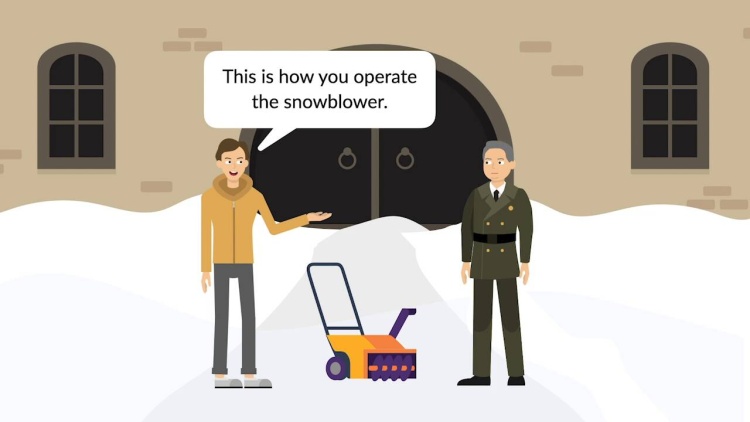Hunt v. Ohio Dept. of Rehabilitation & Correction
Ohio Court of Claims
696 N.E.2d 674 (1997)

- Written by Denise McGimsey, JD
Facts
Lesa Hunt (plaintiff), an inmate in the custody of the Ohio Department of Rehabilitation and Correction (ODRC) (defendant), was assigned to work on an outside yard crew. Carl Jenkins, the officer in charge of the yard crew, tasked Hunt with clearing sidewalks using a snowblower. Neither Hunt nor Jenkins had ever used a snowblower before. Jenkins gave Hunt 10 minutes of instruction based on training he had received a week earlier from Woody Meyers, the head of the maintenance department. Meyers had told Jenkins that if the blower became clogged, the “Power Take Off” (PTO) switch should be activated, the engine should be entirely shut down using a key, and the clog should be cleared with water or some device, not one’s hand. While Hunt was operating the blower, it became clogged. She put the PTO switch into the off position, believing that it would sufficiently shut down power. In actuality, parts of the blower continued to spin even after it was shut down. After inspecting the chute, Hunt inserted a gloved hand into it and began to clear snow. The machine caught the glove and pulled it down. Hunt lost parts of three fingers. She sued ODRC for negligently training and supervising her. The matter came to trial before the Ohio Court of Claims.
Rule of Law
Issue
Holding and Reasoning (Strausbaugh, J.)
What to do next…
Here's why 907,000 law students have relied on our case briefs:
- Written by law professors and practitioners, not other law students. 47,100 briefs, keyed to 996 casebooks. Top-notch customer support.
- The right amount of information, includes the facts, issues, rule of law, holding and reasoning, and any concurrences and dissents.
- Access in your classes, works on your mobile and tablet. Massive library of related video lessons and high quality multiple-choice questions.
- Easy to use, uniform format for every case brief. Written in plain English, not in legalese. Our briefs summarize and simplify; they don’t just repeat the court’s language.






